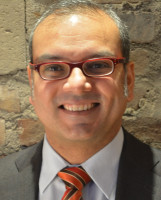Finance, Investment & Risk Management
Societal Challenges
Emerging Market
Investment & Assets Management
Sustainable Finance
Economic Loss & Disaster Risk Financing
Joint Research Initiative
United States
2019.03.31
Impact investing in emerging markets: shedding light on the benefits of patient capital
So why the focus on equities, rather than direct investments (which are, by nature, longer term investments)? To answer the question, Prof. Bose invokes ‘the wisdom of crowds’: “In the stock exchange, there are many more market participants, and the capital flows are much more transparent. Everyone helps everyone determine what the good and the bad investments are. Many small decisions by small players will often add up to a more resilient, more sustainable set of decisions. In other words, you could say that stock exchanges are more democratic than foreign direct investments. This is an important underlying philosophy of our research.” The question this JRI is asking is what happens if the investors hold on to their equity investments over a longer period of time? This is usually what happens with direct investments, investors invest for the long run. So, what would happen if they did the same with equities? Would it have a beneficial impact on the economy of the country, and more specifically, would it impact SDGs?
Testing the potential of patient portfolio flows in a developing context
This question has not been considered in the literature so far because the notion of patient capital is primarily used in developed markets, and even there the concept is quite new, as high frequency trading capital represents the overwhelming majority of trades. In emerging markets, trading activity is feeble, “so foreign portfolio flows have no foil against which they may reveal their potentially patient nature and longer horizons”, he points out. To help shed light on this potential, the academic and non-academic teams working on the project aim to look at the statistical relationship between portfolio investments, their average turn-over, and the return on economic growth. Going even further, they will also try and determine which specific industries offer the most potential when it comes to a specific set of SDGs, namely number 3 to 9, which includes ensuring healthy lives for all at all ages, quality education, gender equality, etc. “The listed equity markets in emerging economies are not as deep as in developed countries. For instance, in emerging markets generally there is less competition within sectors and more government owned and family-controlled companies”, Bose explains. This means that demonstrating the link between stock market investments and beneficial impact on SDGs necessitates digging a little further. To put in simple terms, this second work package will consist in comparing the target countries’ performance in terms of SDG indicators and their proportion of patient capital inflows in specific industry sectors.
“Part of the motivation behind this research initiative is personal. I am fond of emerging markets; they are the reason I started studying economics in the first place. I was born in India, I lived in southern Africa, and when I came to university in the United-States, I wanted to figure out how to make the economies of these countries as vibrant and solid as the one in the US. However, in the nearly 30 years that have passed since, the gap has hardly reduced, if at all. At the same time, I see many investors who are interested in figuring out how to contribute to development globally. It really feels that there are two groups of people that need to be brought together. This is what this project is about”.

Satyajit
BOSE
Institution
Columbia University
Country
United States
Nationality
Related articles
Societal Challenges
Artificial Intelligence & Emerging Technologies
Civil Society & Governance
Polarization & Social Divides
Ethical AI & Responsible Innovation
Post-Doctoral Fellowship
Hong Kong
Impact of Misinformation & Mistrust on Environmental Issues & Democracy: A Comparative Study
Environmental disasters and the way information about them is shared can affect how well democracy works and how people get... Read more

Minos Athanasios
KARYOTAKIS

